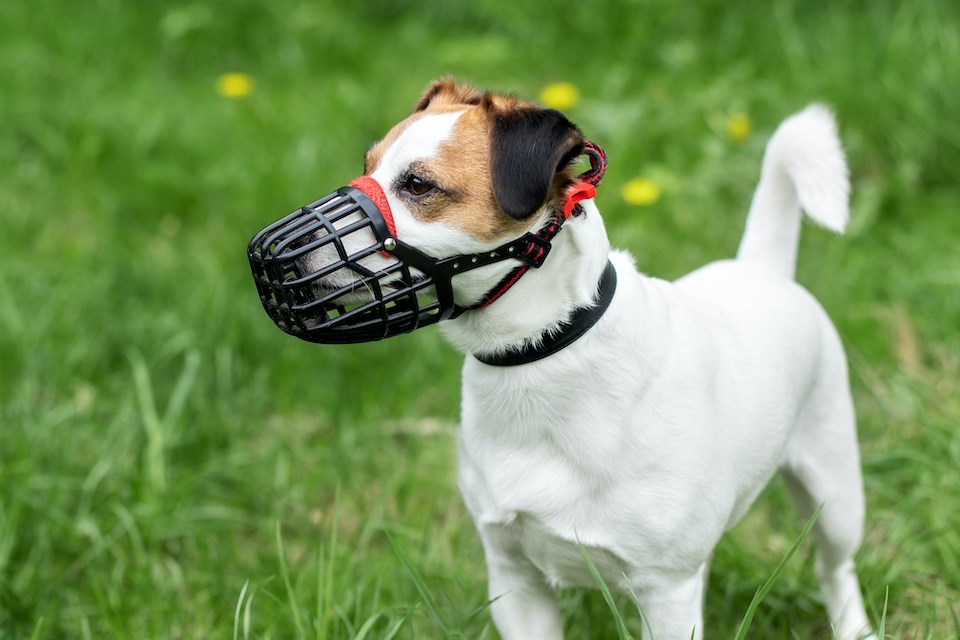Dogs deemed aggressive in the city of Vancouver can get the designation removed but owners will need to take several steps.
All dog owners in Vancouver must get a licence for their pooch but some of them may require a more expensive one after an unprovoked incident of aggression.
Animal Law Lawyer Victoria Shroff says the city doesn't categorize any breeds as "dangerous" or "aggressive" although other municipalities might. Instead, the city issues the label after an incident.
What is the difference between a dangerous dog and an aggressive one?
Shroff tells V.I.A. the dangerous dog designation falls under provincial legislation in most parts of B.C. and is typically applied to "more serious offences."
Dangerous dogs have either killed or seriously injured a person or an animal control officer believes the dogs are likely to do so. Dogs may also be deemed dangerous if they have killed or seriously injured a domestic animal in public or on private property that isn't owned or rented by the dog owner.
Unlike Toronto, Vancouver doesn't have a dangerous dog registry with a map.
The animal law expert notes that the term "aggressive" is subjective and animal control officers determine what constitutes it, rather than a vet. Unfortunately, some dogs may act aggressively if they suffer from an undiagnosed medical condition, such as an ear infection.
"I've had experts in court testify that the inner ear problem [caused the aggressive behaviour]. The vet visit showed the dog was off balance from a fluid build-up," she explains.
Aggression can include far-ranging behaviours deemed hostile that threaten other animals or people. These may include anything from growling to snapping to play-fighting to snapping.
Shroff clarifies that the annoying dog down the hall isn't considered aggressive or dangerous, regardless of how much it might bother tenants.
"There is a difference between a nuisance dog and an aggressive one," she notes. "The dog down the hall that is barking all the time is just exhibiting normal behaviours," she offers as an example.
Aggressive dog licences in Vancouver
A dog deemed aggressive by the city requires a different tag, identifiable by its bright red, octagon-shaped tag (similar to a stop sign). These tags notify people who may prefer to keep their distance or how to "best interact with the dog," according to the City of Vancouver.
The annual fee for an aggressive dog licence is higher than the regular one at $200. The City deems a dog aggressive if in Vancouver it "has bitten or attacked a person or another domestic animal, without being provoked."
The City of Vancouver Bylaw 9150 s. 4.14 states that "a person who keeps a dog must not permit, suffer, or allow the dog to bite, attack or injure a person or domestic animal."
Following the by-law, owners with aggressive dogs need to take steps to ensure their pets don't bite or injure people or other animals.
"Muzzling and signage need to be in place to prevent untoward outcomes like another bite. There are many restrictions placed on dog owners who have an aggressive animal," Shroff notes.
Owners with aggressive dog licences must also maintain full control of their dogs with a leash at all times in public areas and obey all the licence's conditions.
Can an aggressive dog designation be appealed?
Animal Services staff investigate incidents of aggression and may request owners to apply for an aggressive licence. However, they can appeal the decision.
Pet owners should visit their vet if their dog starts acting aggressively. A vet's expert opinion may encourage a judge to remove the designation if the issue is rectified.
The city also allows a one-time removal of the designation if the dog meets the following criteria:
- The dog is free of any complaints or unprovoked incidents in 12 months
- The dog completes an acceptable behavioural modification course or was assessed by a qualified professional as being no longer aggressive
- The owner complies with all requirements and conditions of their aggressive dog licence, including:
- Paying their dog licence fee annually
- Muzzling their dog when they are away from their home and out in public
- Following all additional conditions, as required by Animal Services
Shroff notes that gentle bites are also common behaviour and many dogs bite at home. However, the way the pet acts in public is what matters.
"The goal is balancing public safety with the rights and responsibilities of dog owners," she says.
"We need socialization on both sides of the leash."



